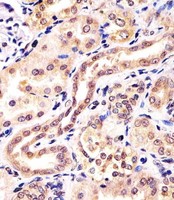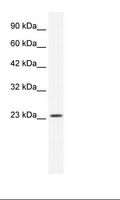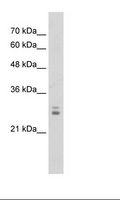order histories, retained contact details for faster checkout, review submissions, and special promotions.
Forgot password?
order histories, retained contact details for faster checkout, review submissions, and special promotions.
Locations
Orders Processing,
Shipping & Receiving,
Warehouse
2 Shaker Rd Suites
B001/B101
Shirley, MA 01464
Production Lab
Floor 6, Suite 620
20700 44th Avenue W
Lynnwood, WA 98036
Telephone Numbers
Tel: +1 (206) 374-1102
Fax: +1 (206) 577-4565
Contact Us
Additional Contact Details
order histories, retained contact details for faster checkout, review submissions, and special promotions.
Forgot password?
order histories, retained contact details for faster checkout, review submissions, and special promotions.
KCTD11
potassium channel tetramerization domain containing 11
Plays a role as a marker and a regulator of neuronal differentiation; Up-regulated by a variety of neurogenic signals, such as retinoic acid, epidermal growth factor/EGF and NGFB/nerve growth factor. Induces apoptosis, growth arrest and the expression of cyclin-dependent kinase inhibitor CDKN1B. Plays a role as a tumor repressor and inhibits cell growth and tumorigenicity of medulloblastoma (MDB). Acts as an E3 ubiquitin-protein ligase towards HDAC1, leading to its proteasomal degradation. Functions as antagonist of the Hedgehog pathway on cell proliferation and differentiation by affecting the nuclear transfer of transcrition factor GLI1, thus maintaining cerebellar granule cells in undifferentiated state, this effect probably occurs via HDAC1 down-regulation, keeping GLI1 acetylated and inactive. When knock-down, Hedgehog antagonism is impaired and proliferation of granule cells is sustained. Activates the caspase cascade.
| Gene Name: | potassium channel tetramerization domain containing 11 |
| Family/Subfamily: | Ion Channel |
| Synonyms: | KCTD11, C17orf36, KCASH1 |
| Target Sequences: | NM_001002914 NP_001002914.1 Q693B1 |










If you do not find the reagent or information you require, please contact Customer.Support@LSBio.com to inquire about additional products in development.









